When They Won’t Read But Keep Asking You for Answers
Overexplaining isn’t a trauma response. It’s what clarity sounds like when no one listens.
Writing as Record-Keeping When Listening Fails
“You don’t always grieve after you leave people. Sometimes you grieve while you’re still setting the table. While your hands cook, your heart has already divorced. The wisest women say goodbye long before their mouths ever do.” -Lovette Jallow
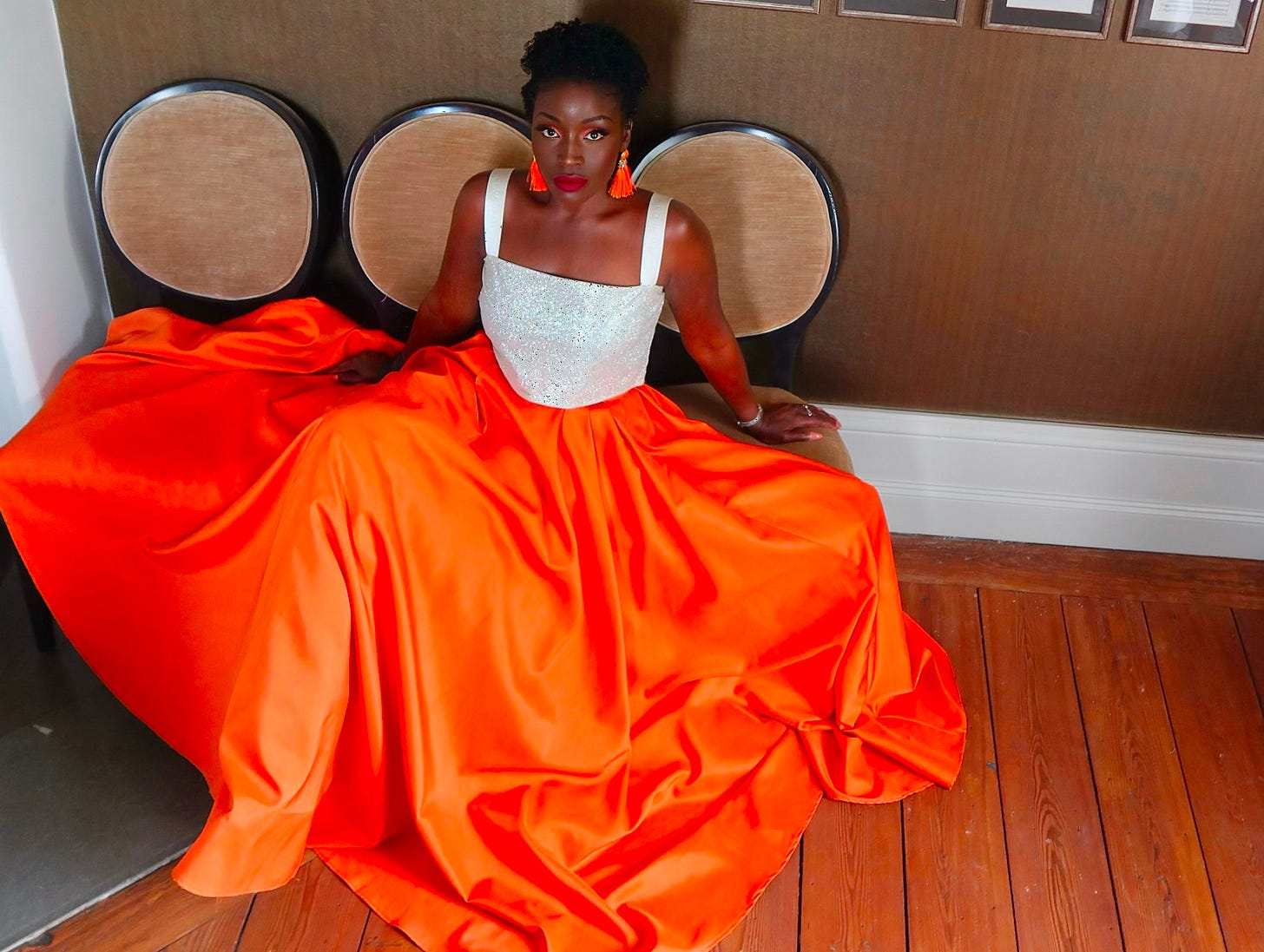
I was recently speaking with a friend I’ve known for nearly 20 years. They are kind, consistent, and deeply worthy of the love I feel for them. CB has shown up in their pain and in mine. They ask, reflect, adjust. They care practically, not just emotionally.
I love our conversations, their curiosity, their honesty, their becoming. CB is a joy. And I want to be learned too. I just wanted them to know my language.
During our chat, I noticed a rhythm forming. I'd say, “That ties into my work on neurodivergence in Africa. I’ve written on that too, I’ll send it.” Then another 20 minutes would pass, and again I'd offer a link or a piece I’d written.
Eventually, they said gently, “I’m not able to do much reading right now.” They're a founding subscriber here, though.
I smiled. “No problem, I recorded it too. You could listen if that’s easier.” They paused. “I don’t like podcasts. The manosphere ruined them for me.”
So I thought, not unkindly: “If you don’t read, and don’t listen—why did you subscribe?” And in that pause, something settled. Not grief. Not frustration. Just recognition.
They support me in every way. They show up, with softness, with consistency, with care. But the question lingered: why do I write, and sometimes, for whom?
What I was feeling wasn’t about them. It was delayed processing asking me to reflect, not react. To pause before misplacing old hurt on the wrong person.
This wasn’t rupture. It was intimacy. A friend healing. A moment asking for grace. And so, I screen-shared the piece and read it aloud. We paused. We discussed. It was a love language. They were worth that effort for me, for us.
But now, let me tell you about the times I did the same, and it wasn’t intimacy but something else.
It’s Not Overexplaining If You Were Never Listening
Before you proceed, I want to clarify:
Believe it or not, as an intermittently speaking autistic person, I don’t enjoy repeating myself. I spoke before I walked and learned seven languages, not to perform, but to connect. I read tone, silence, and gesture as fluently as words. And because I spend nearly half my time non-speaking, every time I do speak, it’s intentional.
When I do speak, when I spend that energy I want to pick up where we left off. I want depth. Continuity. To build on what we’ve already covered and discover something new together.
When we cycle back to the same questions over and over, it doesn’t feel like care. It feels like static.
That’s why I write, why I archive, why I send links—so people can revisit the logic as often as needed without me having to re-open the same emotional tabs.
Overexplaining isn’t a hill I die on. I only do it when I’m moving around the mountain, looking for another entry point because I assume the person I’m speaking to wants to come in.
But eventually, I realize: I’m the one walking in circles.
They’re still staring at one side, waiting for the story to change without ever reading the first chapter.
Some Essays Were Letters to Friends Who Never Read Them
My body had already understood: I was grieving a friendship while still inside it. Not with anger but with clarity.
Just the day before, I was still waiting on a response from another friend. I’d written multiple Substacks on emotional labor, patriarchy, and how men’s weaponized incompetence becomes women’s burden, then trickles down onto their friends.
It was the third year she called, overwhelmed. And the third year nothing shifted.
She hadn’t opened a single essay. Not the one on matriarchy. Not the one on centering the child. Not the one written line by line about the lessons of us.
I’m the godparent who helped doula the birth.
It reminded me of the birthday trip I took with them a few years ago. A time that’s always heavy since my grandmother passed. I flew out on a promised celebration. Instead, no one planned anything. No one even acknowledged it.
I had longed to stay home, near my altar, in quiet presence with my ancestors. The restaurant only found out it was my birthday when I started crying at the end of dinner. They ran to bring me a mango mousse in quiet apology. Then my hotel room flooded. And so did my spirit.
We laughed because what else do you do when your sadness manifests into their soaked designer bags and my unspoken grief?
When I finally spoke about that trip, she listened. I was grateful.
Later, she poured thousands into repairing her relationship with someone who had once stepped away when she needed him most.
And I, in that same season, found someone who saw my heart and took me to Mexico someone who wanted to restore what the birthday had taken.
That’s been the rhythm of my life: wherever I lay my tears, flowers bloom after.
I returned nourished. She returned blessed.
I doula’d through her pregnancy pain and birthing. As well as my own physical illness at the time. I did this. Not for validation. Not because she earned it. But because I was raised in a matriarchal tradition.
One where care isn’t conditional. Where we respond to need, not just intent. Where support isn’t performance—it’s infrastructure.
In our lineage, children are not sidelined, they’re centered. To center a child is to support the mother, the village, the system around them. I stepped in because the child deserved it. And because my grandmother raised me to.
Care Has Limits - Even in Matriarchal Lineages
We do not pour from our cups. We pour from the overflow. Over time, I watched the pattern repeat. She continued to pour into a bond that had never held her fully over a decade, going on two. And when it unraveled again, she called me.
Not with curiosity.
With collapse.
She hadn’t shown up for me.
Hadn’t asked what I needed. Hadn’t made space for my grief, my health, my work, my becoming.
That’s when it landed: I was never the friend she poured into. I was the place she came to empty out.
And in Wolof, we say: The well you drink from, you must cover in the rainy season.
Eventually, I stopped waiting for support that wouldn’t arrive. I did what neurodivergent mirror-healers do—what my Fulani lineage trained us to do: I turned inward. And began singing the song of words back to myself.
When I Stopped Teaching, I Started Writing to Be Heard
I don’t write to explain. I write to document and those who need it find it.
I turned to my writing. Finished book three. Then four.
That’s how I write: 180,000 words let them breathe.
Let them dance. Each month, I revisit. Rearrange by hand. Cull.
Rebuild. I call it thinking with Legos and it’s the most reliable act of care I’ve ever given myself. The more clarity I built, the more distance they created.
She and others I once loved began fading from what they once asked me to explain. But strangers didn’t flinch. They read. They responded. They quoted my words back to me. Even as I wrote in spirals. Even as I refused to soften. Even as I dared to write without the humility expected of Black women.
Then I found Substack. A platform without character limits. No stage. No applause. Just space. No one knew Lovette Jallow. Just the writing. I could write between rest. From the bath. Say fuck when needed. And finally release the stories that had marinated for years.
Then they came. They subscribed. They returned. They stayed. I was amused. The essays my friends scroll past are the same ones that strangers save, annotate, translate, share. What I built to help my own community navigate itself… is being held by other communities entirely.
And that’s when it landed fully: Some of the most helpful things I’ve ever written were never read by the people I wrote them for.
But they found their readers anyway.

Autistic Grief and Delayed Processing—It’s Not Disconnection. It’s Clarity.
When you’re autistic, grief doesn’t always arrive on time. It moves slowly.
It can take weeks, months, or even years for my body to name what it already knows. That’s the delayed processing of autism and the layered silence of alexithymia, which literally means “no words for emotions” in Greek.
I often feel before I can explain. My body tenses before I understand why. So I’ve learned to treat that tension as a signal. A message. When my chest tightens or my voice disappears, I don’t push through, I get curious.
Because I’ve realized I am deeply curious. About myself. About others. About growth. And I wonder why many around me are not and find others who are....”Divergent”. Why is the opposite of curious the norm.
When people repeat the same patterns without reflection, I listen to the wisdom in my body. I give it time. I give it distance. And then, when it’s clear, I release the people, places, and patterns that no longer match my direction.
This isn’t about loss. It’s about choosing alignment over effort.
When I Stopped Explaining, I Started Being Understood
Some keep you close for comfort, not comprehension. They seek the warmth of your fire, not the illumination that prompts introspection.
I once questioned my clarity. Despite being recognized among 150 of Sweden’s top communicators within the business industry—known for distilling complex topics into accessible insights—I wondered: If those closest to me don’t hear me, is it because I’m not speaking clearly?
But clarity was never the issue. It was placement. They weren’t listening—not because I wasn’t speaking, but because they never intended to learn from me.
When strangers echo my words back to me, expressing how seen they feel, while loved ones dismiss my efforts, it’s evident: You weren’t invisible. You were mislocated.
I wrote with love. With urgency. With insight shaped by decades of observation. But if someone won’t read or listen, that doesn’t mean the message failed. It means they weren’t the recipient anymore.
Because when you weave stories to help someone escape a space they chose to stay in and someone else climbs toward healing with that same thread—you realize: that thread was meant for a different journey.
I’m Still Writing—But No Longer Waiting
Even the griot eventually stops singing for those with closed ears. They pick up their kora not to explain, but to remember themselves. To offer the melody to those who hum it back.
I still write.
But I no longer send follow-up messages to ask if they’ve read it.
I no longer perform education on demand for people who won’t meet me where I already am.
My work continues.
But I’ve stopped singing to soothe those who treat the song as noise.
Stopped casting wisdom into rooms that treat it like background sound.
First, 40,000 read.
Then 400,000….
The ones it was written for? Never did.
And so, I write new journeys as old ones end without goodbye.
Because my experiences and history has shown me: they always seek my words when I am no longer around to give them voice.
If This Resonates
You’ll find more of my essays on breaking intergenerational cycles, Neurodivergence and holding boundaries and reclaiming voice.
Matriarchy vs. Gynarchy: Why Replacing Men Isn’t Liberation | Lovette Jallow
Who is Lovette Jallow?
Lovette Jallow is one of Scandinavia’s most influential voices on systemic racism, intersectional justice, and human rights. A nine-time award-winning author, keynote speaker, lecturer, and humanitarian, she specializes in neurodiversity, workplace inclusion, and structural policy reform.
As one of the few Black, queer, autistic, ADHD, and Muslim women working at the intersection of human rights, systemic accountability, and corporate transformation, Lovette brings an unmatched perspective rooted in both lived experience and professional expertise. Her work bridges the gap between theory, research, and action, helping organizations move beyond performative diversity efforts toward sustainable, structural change.
She has worked across Sweden, The Gambia, Libya, and Lebanon, tackling institutional racism, legal discrimination, and refugee protection. Her expertise has been sought by global publications like The New York Times, on high-profile legal cases, and by international humanitarian organizations, where she has provided critical insights on racial justice, policy reform, and equity-driven leadership.
Follow Lovette Jallow – DEIB Strategist, Keynote Speaker & Humanitarian:
Website: lovettejallow.com
LinkedIn: linkedin.com/in/lovettejallow
Instagram: instagram.com/lovettejallow
YouTube: youtube.com/@jallowlovette
Twitter/X: twitter.com/lovettejallow







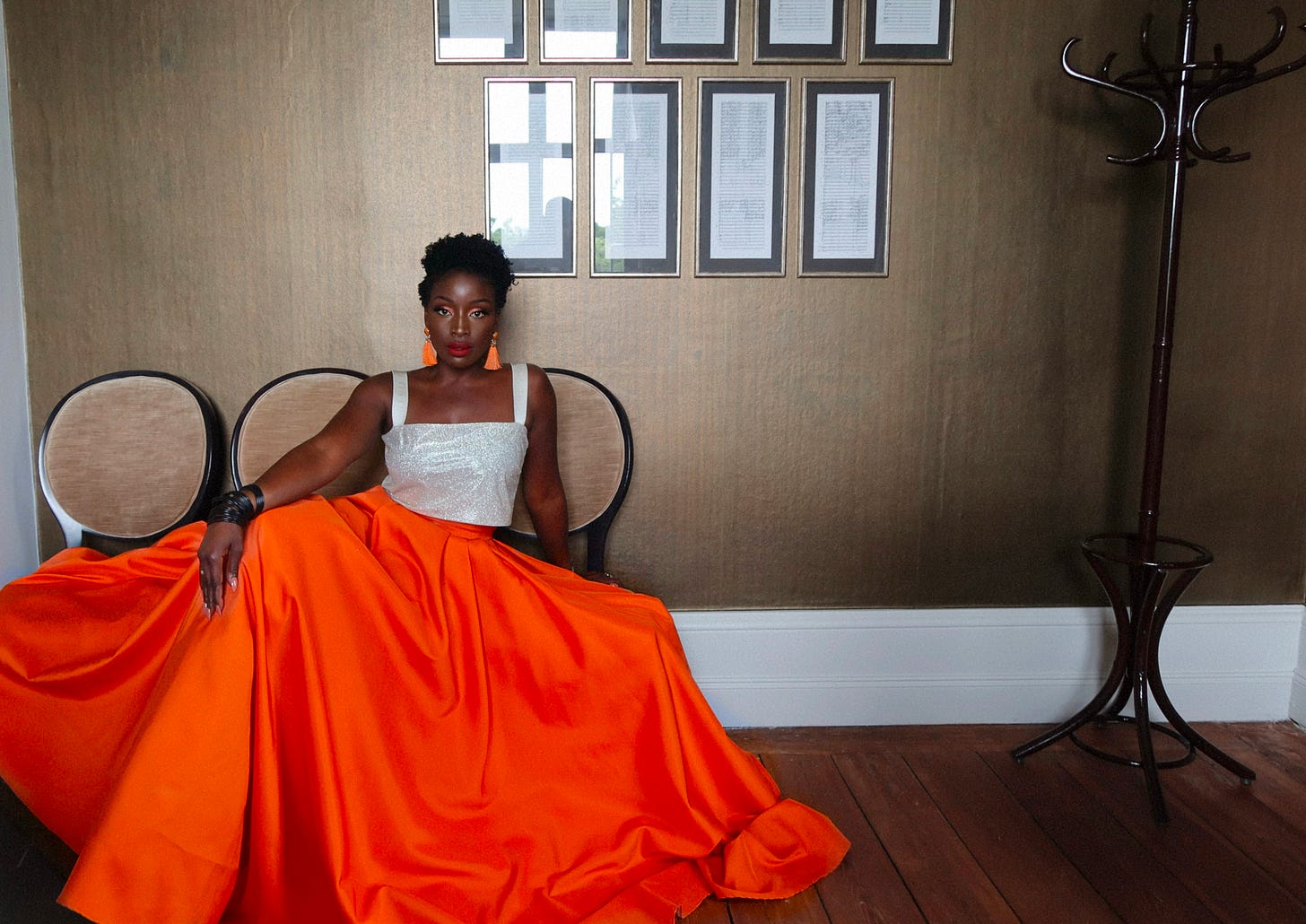
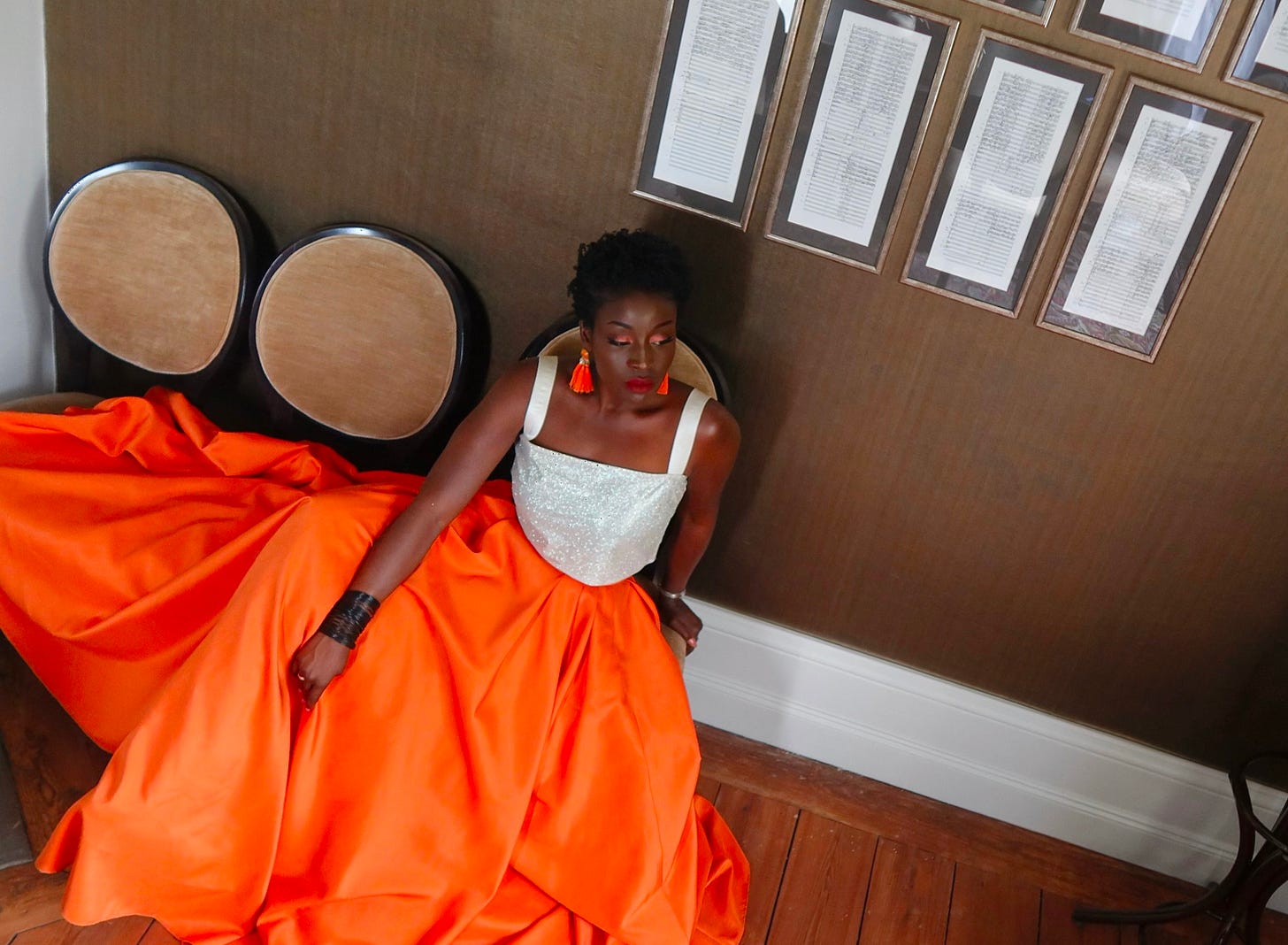
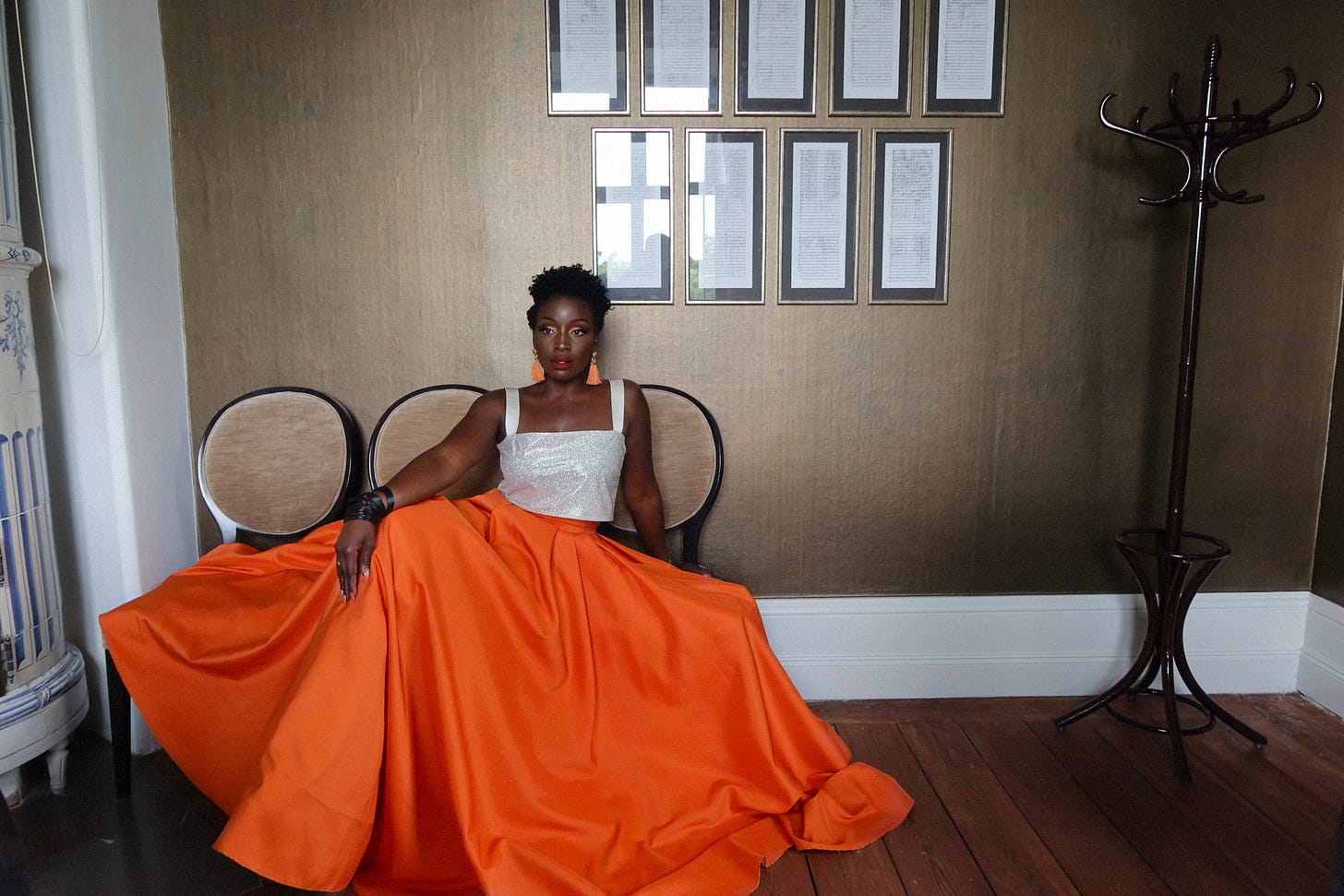







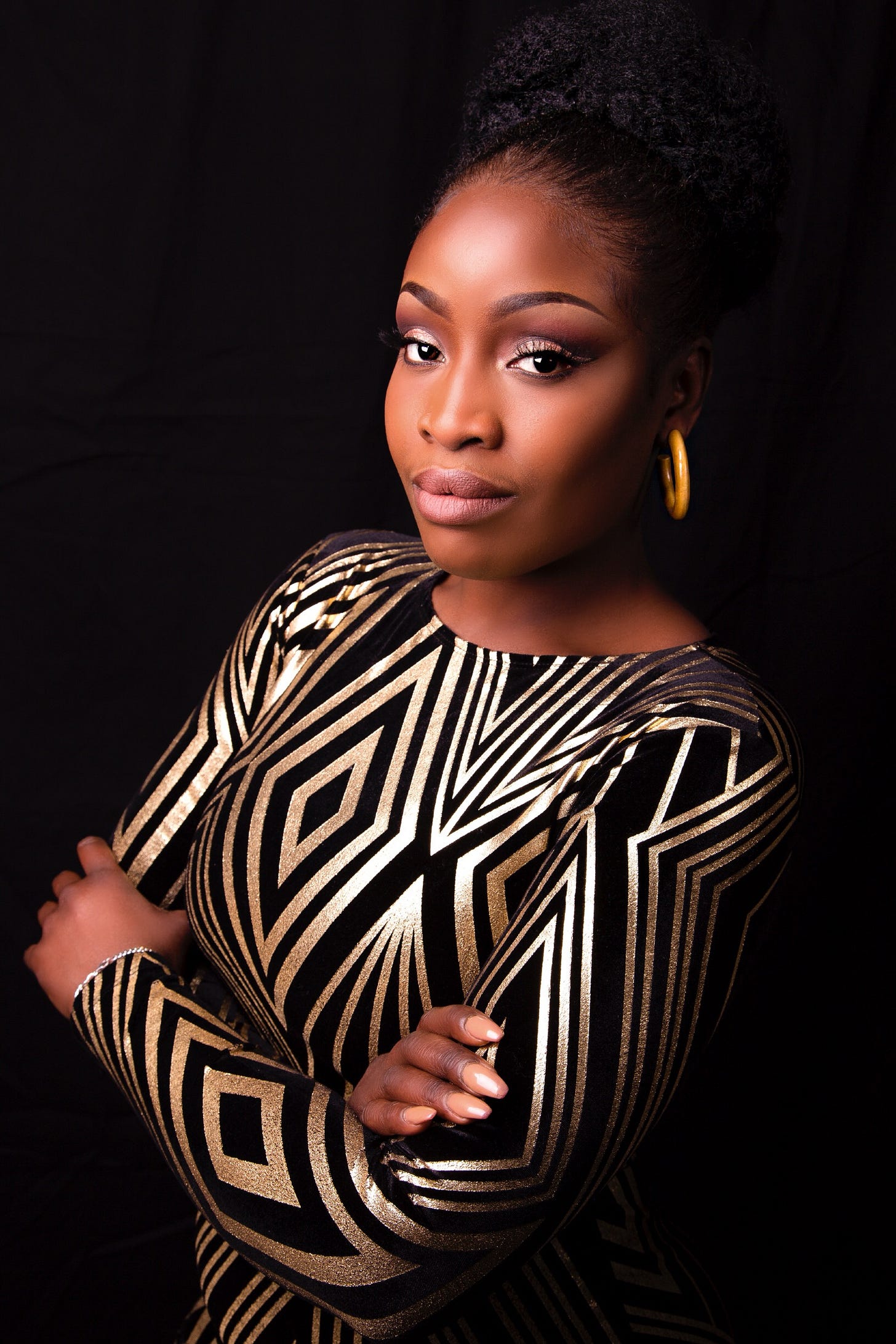
This requires reading more than once, because there's soooooo much here. So much. Thank you, once again. The wisdom is just astonishing.
Thank you for writing this. I can definitely relate—both in terms of friends not being willing to read what I write and in terms of friends only wanting to take from the relationship and never giving back.